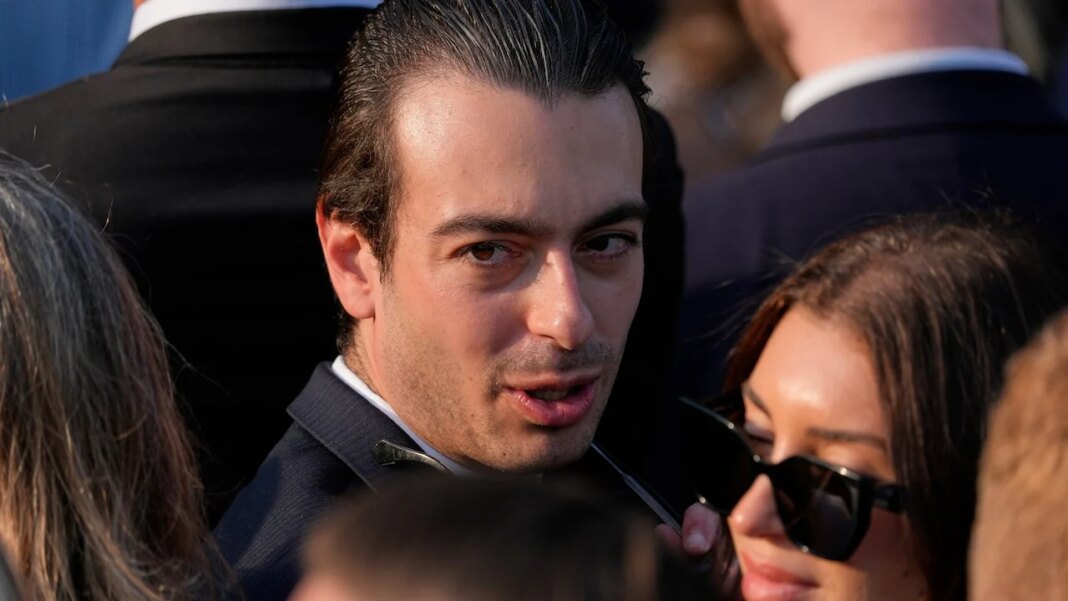Fallout from Trump’s Nominee Withdrawal: A Closer Look at Paul Ingrassia
In a dramatic turn of events, President Donald Trump’s choice to lead the Office of Special Counsel, Paul Ingrassia, has withdrawn his nomination amidst controversy. The decision followed the revelation of inflammatory text messages that sparked outrage among Republican senators. This unfolding saga highlights the often turbulent intersection of politics and public sentiment, particularly within the GOP.
The Controversial Text Messages
Paul Ingrassia was set to confront the Senate Committee on Homeland Security & Governmental Affairs (HSGAC) for his confirmation hearing. However, a recent report by Politico shed light on inappropriate remarks made by Ingrassia that changed the trajectory of his nomination. Ingrassia’s texts suggested that Martin Luther King Jr. Day should be “tossed into the seventh circle of hell.” He also described himself as having “a Nazi streak” at times. Such incendiary comments, especially regarding a revered civil rights figure, proved to be a significant point of contention.
Republican Senators Revolt
The backlash from GOP senators was swift. Notable Republican figures, traditionally supporters of Trump, expressed their disapproval and indicated they could not support Ingrassia’s nomination. This revolt showcases an emerging divide within the party, indicating that even among Trump’s staunch allies, there exists a threshold for tolerating controversial nominees.
Ingrassia’s Withdrawal
Amid mounting pressure and the prospect of an unfavorable confirmation hearing, Ingrassia announced his withdrawal through an online statement. He expressed gratitude for the support he received but acknowledged the lack of sufficient Republican votes to move forward. His assertion that he would continue to serve President Trump and the administration underscores the loyalty within his stance, despite the setback.
White House Response
When approached for a comment on Ingrassia’s withdrawal, the White House maintained a terse stance: “He is no longer the nominee.” This response aligns with the administration’s typical strategy of downplaying controversies but points to a broader theme of navigating political fallout. Senate Majority Leader John Thune had previously expressed hope that the White House would retract Ingrassia’s nomination, hinting at a growing consensus among some Republicans regarding the mounting controversies.
The Larger Context of Nominations
Historically, the Trump administration has succeeded in advancing numerous nominees through predominantly partisan votes, even when faced with intense Democratic opposition. However, Ingrassia’s case highlights the limitations of this approach. There have been several instances where GOP pushback has manifested, revealing the complexities surrounding party loyalty and candidate acceptability.
For instance, other high-profile nominees have faced similar hurdles, reinforcing the notion that strong political ties do not always guarantee unanimous support. Notable examples include Matt Gaetz’s withdrawal as attorney general shortly after his nomination and Trump’s retraction of Ed Martin Jr.’s nomination for top federal prosecutor due to concerns about his experience and past associations.
Implications for the Office of Special Counsel
The Office of Special Counsel plays a critical role in safeguarding government employees and whistleblowers from retaliation. It also enforces the Hatch Act, which limits the political activities of government workers. The office’s function is vital for maintaining ethical standards within federal agencies and ensuring that reporting of misconduct is protected.
Ingrassia’s nomination, initially viewed through the lens of his legal acumen—he was described by Trump as a “highly respected attorney, writer, and Constitutional Scholar”—was dramatically overshadowed by his online conduct. The texts not only raised questions about his suitability for such an influential position but also about the broader implications for the integrity of the Office of Special Counsel.
Defense and Denial
Ingrassia’s lawyer has suggested that the text messages might have been manipulated or taken out of context, though the authenticity of the messages has not been confirmed. This defense illustrates a common strategy in political controversies—attempting to pivot narratives to mitigate fallout. However, the underlying sentiments expressed in those texts may continue to resonate negatively among both political allies and opponents alike.
As the political landscape continues to evolve, this episode serves as a crucial reminder of the delicate balance between personal beliefs, public representation, and the ever-watchful eyes of both the electorate and political peers.



